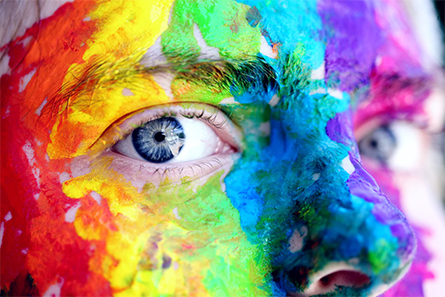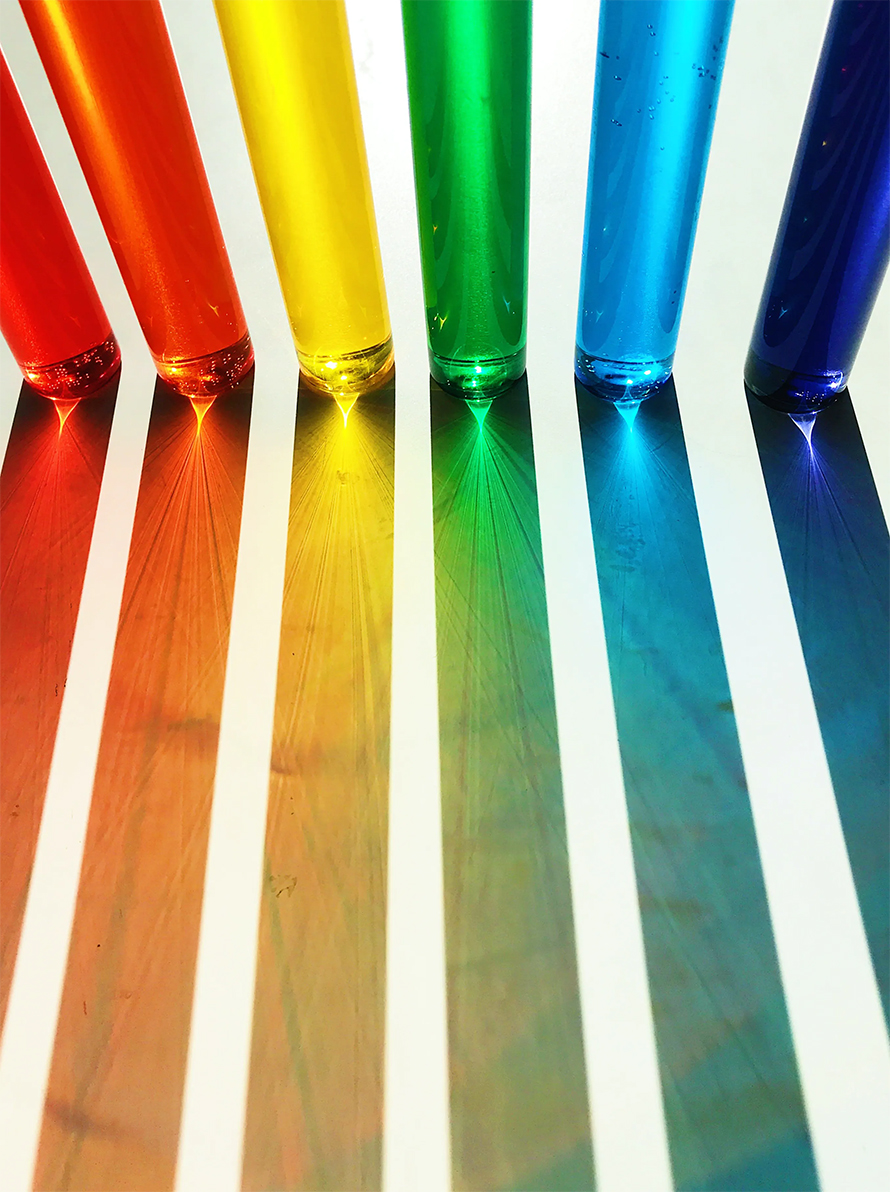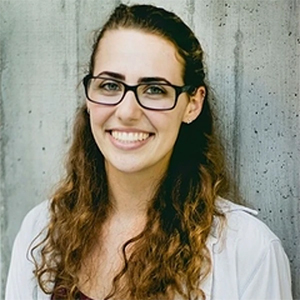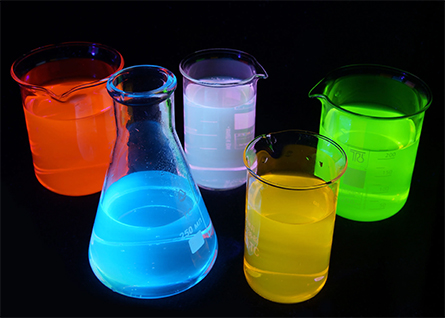Science thinks it’s unbiased. Queer scientists know that’s not true
I know firsthand the gulf between science’s supposed open-mindedness towards new ideas and its attitude towards identities. Science and academia try to give an impression of sociopolitical neutrality and acceptance of queer* identities (*this broadly includes everyone in the LGBTQ+ community). As a queer scientist, I know it isn’t true.

When I was gearing up for graduate school interviews, I asked the science Twitter community when or if I should bring up being queer. One person replied with something like, “It’s laughable that you think that being queer would be a disadvantage and not an advantage in 2019.”
But what this person didn’t understand is that queer scientists are constantly weighing their personal safety versus career opportunities. Each time we apply for new positions, attend conferences, or travel for fieldwork, we have to consider whether these choices are safe. (Yes, even in 2019 and 2020.) This means there are some opportunities that we pass up, choosing safety over science. Even if a queer scientist finds their dream job, if it’s located in a more conservative place, they may decide against it. We also have to consider that in 26 US states, covering 42% of the US’s LGBTQ+ population, people could until recently be fired for being LGBTQ+– something that the US Supreme Court only this week outlawed. But the hostility that made the discrimination legal in the first place isn’t going away.
Quality of life matters too. Even if your job is not at risk, it’s still legal in 25 states to be denied housing or the ability to adopt a child based on sexual orientation or gender identity. And in 17 states, hate crime laws don’t protect LGBTQ+ citizens. Within STEM, LGBTQ+ scientists continue to face harassment at all career levels and often leave their jobs because of it.
I’m lucky to have had mostly positive experiences being queer in STEM, but my experiences do not speak for everyone. While US society has become more accepting of queer people, most of these advances have helped cis, white queer people more than the more marginalized members of the queer community. Trans or non-binary people and queer and trans people of color (QTPOC) face unique obstacles in STEM. Allies need to step up – especially for more marginalized queer people.
Sometimes, queerness is “invisible,” and we can choose if and when we share our identities. But trans and non-binary people are often forced to out themselves due to misgendering or deadnaming, which can lead to discrimination that they may not have otherwise faced. Some trans and non-binary students have experienced advisors becoming distant or less communicative after they came out, making academic progress difficult.
QTPOC also face additional challenges. Homophobia, transphobia, and racism are all interrelated, and when marginalized identities are combined, people at the intersection of these identities are subject to unique forms of discrimination. One student told me that being trans and Latinx was so difficult in his animal science department that he dropped out. “Many of my peers in animal science came from farming backgrounds and I don’t think it was healthy for me to hear people talk about Mexicans like they are property,” he said. “One time my friends and I were attacked… and it felt like a pretty charged incident since all of us were Latinx or Black and visibly gay.”
Even if the environment isn’t physically dangerous, ongoing discrimination takes a toll. LGBTQ+ people are more likely to attempt suicide compared to their cis/straight peers, and this remains true in the high stress environment of academia. As an undergrad, Julie Johnston was one of four trans women at her school. When one of her trans friends passed away, it made her question her own academic trajectory. She explained, “There was just that horrible feeling of when you’re from one out of four people moving to one out of three people and not thinking that you’re going to make it.”
There has been a push in recent years to include more diverse voices in research. Despite the fact that LGBTQ+ scientists are underrepresented in STEM, federal funding agencies like the National Institutes of Health do not consider queer identity a form of diversity like racial/ethnic background and (at the faculty level) being a woman. Nevertheless, some grant applications ask researchers to include a “broader impacts” statement explaining how their research benefits society, and sometimes training queer scientists is included here.
But when the “inclusion” doesn’t come with real support, it’s easy to feel like we’re only included to check diversity boxes. It’s a disservice to students when people in power use their identities only when it’s convenient for them. Professors and other people in power need to do the work to support their queer and minority students first before using their identities to advance their own careers. Checking in after stressful events like the Pulse Nightclub Shooting or making a lab-wide statement in strong support of Black Lives Matter goes a long way.
And if professors do want to mention a student’s queer or minority identity in a grant application, there should be an open dialogue about it. Ashley Cunningham, a queer Black graduate student at the Icahn School of Medicine at Mount Sinai explained, “It should be part of a conversation so that we can control our own narrative, not just someone taking control of our narrative. That just reinforces the fact that queer people and minority people are marginalized. We’re being marginalized because we can’t even live our own experience and have control of our own experience, someone else is taking control of it for us.”
Ideally, professors should be knowledgeable about how they can support queer students before these students come to them. Much of the support I’ve received came only after I outed myself as queer. While it’s nice to have support once I’ve come out, it would be nicer to know in advance that the academic environment is supportive of queer people because not knowing is part of what makes coming out feel potentially unsafe. When professors and co-workers make it apparent that they are allies, it makes it easier for me to be myself. Even acts as simple as displaying LGBTQ+ ally stickers and including pronouns in emails are noticeable to the people who are looking for them.
When professors stand up and fight for their students, it makes a big difference. As a current graduate student, I talked to an applicant during our program’s interview weekend who expressed several homophobic ideas. When a faculty member found out, he reached out to me and assured me that there is absolutely no tolerance for homophobia in our department, and that he would do his best to ensure that this person was not admitted. Knowing that some professors are strong allies makes me feel much safer.

But because many people find little support in STEM environments, queer scientists often look elsewhere for this support. I didn’t feel like I truly belonged in science until I found the queer science community on Twitter. I’ve met so many students, postdocs, and professors who I’ve bonded with over shared experiences. Andy Lee, a queer Taiwanese student, stumbled upon queer science Twitter and immediately felt seen. He said, “One of the first times I knew definitively that someone was a scientist and queer was when they [posted] ‘I’m a scientist and queer,’ and there was a rainbow next to their name. I was literally just midnight scrolling on Twitter and I started crying because I didn’t even know it was important to me.” Representation matters because it’s hard for people to see themselves as future scientists without seeing their identities in their role models.
Queerness and science are inextricable. Science is inherently influenced by the people who conduct it, and regardless of how objective scientists think they are, unconscious biases are at play. Every day, queer graduate students have to defend ideas to professors who don’t understand how biases impact research. When their ideas are silenced by more senior scientists who believe that identity doesn’t—and shouldn’t–play a role in research, it sends the message that queer students are not welcome. This, combined with overt homophobia and transphobia, lead to queer people leaving STEM fields at higher rates than their cis/straight peers. While there has been some improvement in how people in STEM treat their queer peers, there is still much progress to be made. Our voices need to be heard, and our ideas need to be shared.
Including people with different experiences means a wider array of ideas are shared, and this improves science. But queer people should not have to be movers and shakers of their fields to earn a seat at the table. We simply deserve to be there.
This story originally appeared on Massive Science, an editorial partner site that publishes science stories by scientists. Subscribe to their newsletter to get even more science sent straight to you.
Enjoy reading ASBMB Today?
Become a member to receive the print edition four times a year and the digital edition monthly.
Learn moreFeatured jobs
from the ASBMB career center
Get the latest from ASBMB Today
Enter your email address, and we’ll send you a weekly email with recent articles, interviews and more.
Latest in Opinions
Opinions highlights or most popular articles

Women’s health cannot leave rare diseases behind
A physician living with lymphangioleiomyomatosis and a basic scientist explain why patient-driven, trial-ready research is essential to turning momentum into meaningful progress.

Making my spicy brain work for me
Researcher Reid Blanchett reflects on her journey navigating mental health struggles through graduate school. She found a new path in bioinformatics, proving that science can be flexible, forgiving and full of second chances.

The tortoise wins: How slowing down saved my Ph.D.
Graduate student Amy Bounds reflects on how slowing down in the lab not only improved her relationship with work but also made her a more productive scientist.

How pediatric cataracts shaped my scientific journey
Undergraduate student Grace Jones shares how she transformed her childhood cataract diagnosis into a scientific purpose. She explores how biochemistry can bring a clearer vision to others, and how personal history can shape discovery.

Debugging my code and teaching with ChatGPT
AI tools like ChatGPT have changed the way an assistant professor teaches and does research. But, he asserts that real growth still comes from struggle, and educators must help students use AI wisely — as scaffolds, not shortcuts.

AI in the lab: The power of smarter questions
An assistant professor discusses AI's evolution from a buzzword to a trusted research partner. It helps streamline reviews, troubleshoot code, save time and spark ideas, but its success relies on combining AI with expertise and critical thinking.


